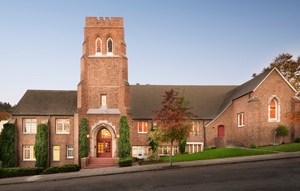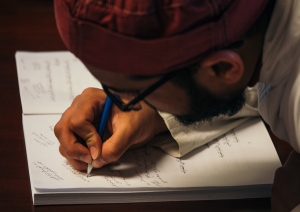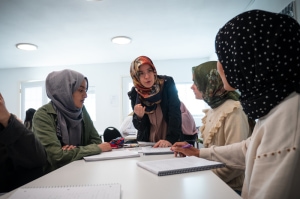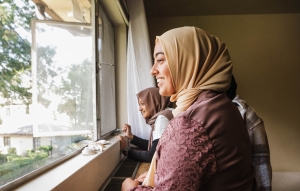Dr. Youssef Ismail: Move At the Speed of Time
FACULTY PROFILE
by Maryam Awwal
November 2021
Dr. Youssef Ismail
“Don’t try to rush things and don’t lag behind. Realize that every moment is a precious moment and be present in it. When chaos happens, move with it, and when things slow down, revel in that slowness.”
“Whatever you do, move at the speed of time,” says Dr. Youssef Ismail, professor of Maliki fiqh, geometry, and astronomy at Zaytuna College. “Don’t try to rush things and don’t lag behind. Realize that every moment is a precious moment and be present in it. When chaos happens, move with it, and when things slow down, revel in that slowness.” This is his advice for students to apply at any stage of life—in their studies, future careers, and daily habits."
This advice is modeled from his own life. After graduating from high school, Youssef had two choices: go to work or continue school. That summer, he tried working at a manufacturing company but decided to change paths when the work (building speakers) made his ears ring. He took placement tests at the local community college, where they placed him at the lowest levels of math and English. Disturbed and disappointed, he decided he’d never get lower than a B in his classes again.
Youssef quickly excelled in his classes, tutoring other students in trigonometry. “The academic fire was lit under me, and I just wanted to learn. Whatever I would study, I made sure I learned it by getting the highest marks in every subject.” Six years after high school, he graduated summa cum laude from CSU Northridge. With the encouragement of his teachers and hoping to stay in California, Youssef applied to two graduate schools: UC Berkeley and Stanford. He was accepted to both.
After a chance encounter with a UC Berkeley student, Youssef chose to enroll at Stanford, intending only to complete his master’s. “I could only afford to do the one year, but they only had two courses for the specialty I wanted to study, which I was upset about. So I talked to the director about why I wanted to come, and he encouraged me to do a PhD. When I told him I couldn’t afford it, he smirked. ‘Never in my 30 years have I seen a student not get the degree they wanted because of money,’ he said. ‘Check in with me again in the spring—but not if you get a 3.0.” The director gave Youssef a stipend to work in the lab that summer and paid his tuition for the next five years.
It was during his time at Stanford that Youssef also began to learn more about Islam. Brothers in the MSA taught him to pray and read Quran, and with that, the love of Arabic and sacred knowledge grew. Within two years, he could read Arabic fluently, consuming whatever he could find. “The love of Islam just started growing. Throughout most of my graduate studies, I felt like I had wasted my time studying engineering. I felt like I had kind of cheated myself. Time went on, and a friend told me that Shaykh Hamza Yusuf was teaching Arabic at a masjid in Santa Clara. I called Yale University Press and got the last hardcover copy of the book they were covering.”
While he was finishing his dissertation and graduate studies, Youssef continued to study Arabic, covering the classical 13th century grammar text, Ājurrūmiyyah, twice with Shaykh Hamza. Upon completing his degree, he continued his studies with Shaykh Hamza and visiting scholars from Mauritania. These classes were during the pivotal early years of Zaytuna, and the room was packed. “People would sit on the apartment balcony to hear.” In the years that followed, Dr. Ismail continued his study of Islam, entirely within the Bay Area.
“It’s the unfolding of Allah’s creation. It only unfolds when He wants it to unfold. And that’s the pace you move at.”
After a few years at Stanford and various companies, Dr. Ismail began his own photography business, selling photos for about three years. He began teaching by chance after helping students at a homeschooling center, a role that grew to be full-time. In 2010, Shaykh Hamza asked him to teach an astronomy class to Zaytuna students, bringing him back to Zaytuna, which had since grown into a college. In addition to his teaching work, Dr. Ismail’s current research interests include improving methods for determining prayer times, assessing the qibla, and moonsighting.
Studying geometry and astronomy are crucial, he says, because of their role in applying the other sciences of a liberal arts curriculum. “Geometry is the study of space and the application of the rules of logic. You practice and formulate arguments and prove them in geometry without any doubt. It is the starting point of all of technology, while astronomy is the starting point of all other sciences. It teaches the skill of observation and the virtue of patience. And it allows us to ponder on the vast creation of Allah.” With both the cosmos and time, he says, “It’s the unfolding of Allah’s creation. It only unfolds when He wants it to unfold. And that’s the pace you move at.”



